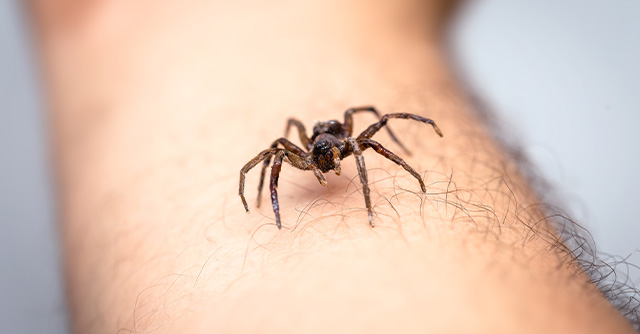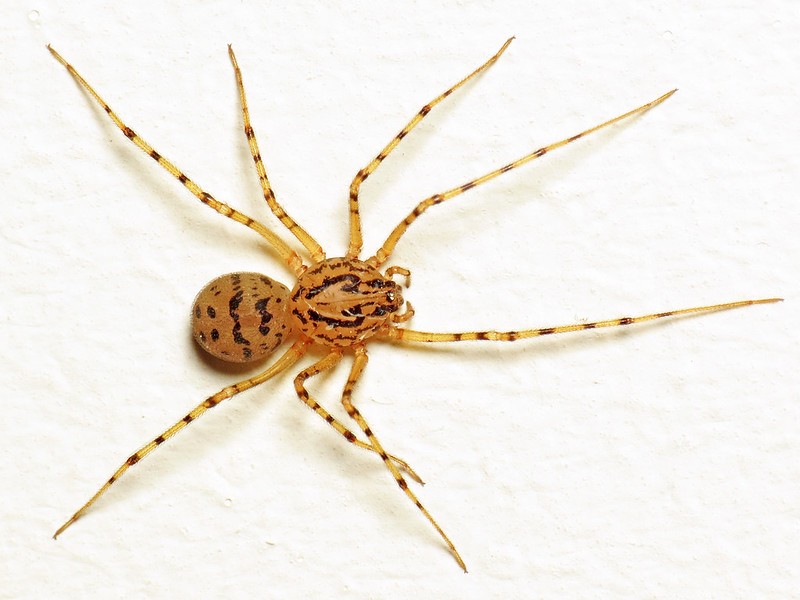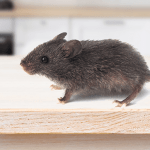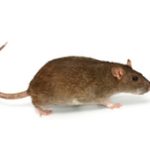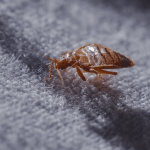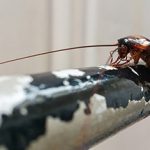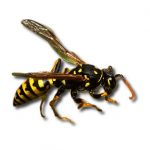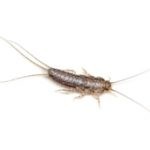This spider variety looks scarier than other types because it’s bigger and hairier. Females are larger and can be found building their web houses in various undisturbed corners of your house, while the smaller male ones can be spotted searching the property for a partner.
What attracts spiders in your house?
The thing with spiders is that they don’t make a home out of, well, yours if they don’t have a reason to do so. Understanding these reasons can help you eliminate some of the factors that can cause an infestation. Now, that being said, here is what attracts spiders in your house. In this article you’ll find the answers to the following questions:
- What are they attracted to?
- How do spiders get into your house?
- Where do spiders hide?
- What types of house spiders can get into my house?
- How to keep spiders out?
Why do spiders come inside the house?
Here are the main reasons for spiders to prefer your property and enter it very often:
Extreme weather conditions
We aren’t talking about tornadoes or snowstorms. House spiders are tiny and fragile and even the smallest change in the weather can affect them. Basically, if it gets a bit too warm, cold or wet outside, expect itsy-bitsy spiders to come looking for refuge in your home.
Having some alone time
Haven’t you wondered why the talented web-makers linger in dark and around hard-to-reach places like room corners and under furniture? Well, it’s in their nature. Plus – those places are best for creating their hunting net.
It’s mating season
Noticed how the number of spider “friends” on your property has drastically increased in just a few weeks? Well, another good reason for having them strolling on your walls is spider mating season. When that egg-making time of the year comes, spiders start looking for the best living accommodation and breeding conditions possible and of course, for a partner, as well.
Check also: What Bugs Come Out in Spring and How to Avoid Them?
In need of spider control?
Book professional pest company and let a specialist resolve the issue!
Nourishment
If you happen to have the right food source (and water) in your house for the insect, a spider invasion is guaranteed. So, if there are various insect pests lingering on your property, you’ve got another good reason to take care of them. Wait, there is more – there are some Araneae species that enjoy fruit, so it’s not a very good idea to leave your bananas and apples unprotected on the kitchen table.
Read more: What do spiders eat?
Egg-laying preferences
You can actually carry spiders into the house by bringing in second-hand items. The insect likes to lay their eggs in hidden places to protect them. You could never know when there is an old, forgotten spider egg sac attached somewhere onto your new vintage sofa, waiting to hatch. Sounds a bit nightmarish now, doesn’t it?
Easy access
Anything from a small crack in the wall to an opened window is a spider invitation. There are even some Araneae species that get clever and use holes made by other types of vermin and crawl in. So, if you don’t fancy the idea of hosting spider parties, take care of any entry points.
How do spiders get into your house?
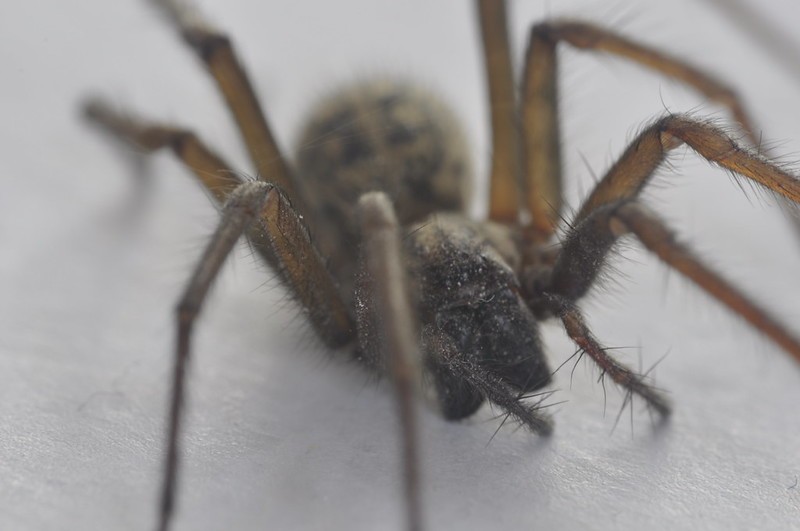 Now that we’ve covered the “why” part, it’s time for the “how” one. If you’ve participated in the never-ending battle against spiders, you may be thinking that there is no effective strategy against them. However, before we even start talking about the battle plan, we need to discuss the weak spots, or in other words – the insect’s entry points.
Now that we’ve covered the “why” part, it’s time for the “how” one. If you’ve participated in the never-ending battle against spiders, you may be thinking that there is no effective strategy against them. However, before we even start talking about the battle plan, we need to discuss the weak spots, or in other words – the insect’s entry points.
Generally, a spider can enter your house in two ways. The first method is just by walking in. Yup, you read this right. A spider can just stroll in your living room without batting an eye if it has access to it. As we mentioned earlier, we are talking about opened doors, windows, gaps, cracks, holes, etc. Needless to say, you need to take care of the above-listed openings.
Make sure to close your doors and windows tightly, replace any damaged strips and if you don’t have any – get door sweeps installed. As for damage, located on the foundation of the property, like cracks and gaps – seal those ASAP. Another common entry point is the air vent. To eliminate any risks of a spider family moving in, place a mesh screen on it. By taking all of these prevention measures, you also protect yourself from other potential pest invasions.
The second method of entering is a bit more… traumatising.
Spiders can hitchhike. Now, don’t imagine a spider flaunting its hairy leg on the road, trying to catch a ride. It’s far less entertaining than that. For example, you can get a spider infestation by bringing the insect in with an old toy, inside of moving boxes, etc. You can even bring the insect into your home after an innocent walk in the park. Now, that being said, there isn’t much that you can do in terms of prevention. Still, you can take the time to inspect any items before you carry them in the house, especially second-hand ones. Vacuuming regularly also works well.
Image by: Ben Osteen / License: CC BY 2.0
Where do spiders hide?
A spider’s preference for a potential hideout or web-building spot highly depends on the type of insect we are talking about. For example, there are varieties that like more moist areas like crawl spaces, basements, and bathrooms. Others are a bit more mysterious and enjoy dark and quiet places such as attics, air vents, and room corners. Common house spiders don’t like to show themselves up – they live in solitude, close to their water and food sources. Overall, most spider species in the UK prefer living in cluttered places, so don’t be surprised if you find an eight-legged buddy or two next time you decide to clear up your garage, attic or storeroom.
Check also: 7 Types of Pests that Infest Christmas Trees
What types of house spiders can get into my house?
Mother nature has “gifted” us with quite an impressive number of spider species that would happily thrive in nature and inside your home if given the opportunity. Here are the top 3 ones that you can spot crocheting webs in your home:
Common house spider
Daddy long-legs
As the name suggests, this spider species has very long legs, which help the insects make vibrating sounds, in order to catch their prey fairly easy. The webs that they create are very fragile and move to the slightest touch.
False widow
There are three false widow spider types that you can find in your home: the Common false widow spider, the Cupboard spider, and the Noble false widow spider. All of them have round, shiny and smooth bodies and short legs. They tend to hide during the day and their webs have a criss-crossed pattern.
Looking for immediate solution for spider infestation?
Rely on expert help from professionals!
How to keep spiders out?
Keeping spiders out of your property is not a hard thing to accomplish. There are a lot of DIY methods that you can try out that are also cost-efficient. Here are a few effective methods:
Essential oils
Spiders really don’t like the smell of some types of essential oils, their biggest enemy being peppermint. Get a spray bottle and fill it up with cold water. Then add around 20 drops of peppermint oil, which can be bought from any pharmacy. Shake the bottle well and spray all potential spider house areas in your home like the corners of your rooms, vents, cracks in the walls and floors, closets, etc. By doing this, you eliminate all chances of having a spider move in.
DIY spider repellent spray
Why spend money on chemically smelling, expensive repellents from the store when you can create one yourself with two kitchen items that you most definitely have in your home – vinegar and black pepper? Again, get yourself a spray bottle or recycle one that you already have. Fill it up with equal amounts of water and vinegar, then add a bit of pepper and shake the concoction. Like with the first tip – spray any entry points or areas that have the potential to be invaded by spiders. If you don’t fancy the idea of your house smelling like a salad for a couple of hours, you can mix water and a bit of dishwashing detergent instead.
Read more: Do conkers keep spiders away?
Sticky traps
This method is good against already existing spiders in your house. You can basically place the traps anywhere around your property, without worrying about your cat getting poisoned, for example, because the solution is non-toxic. You can find this sort of pest trap in any hardware store and it’s fairly cheap.
Professional spider control
Last but not least, if nothing else have helped it’s time to hire an expert spider exterminator. This is the most effective treatment against the six-legged creatures. The pro thoroughly inspects every corner and will spray with powerful insecticides that are not available over-the-counter and have a long-lasting effect. Check more about the spider control service we provide and get rid of the spiders in no time.
Need professional help to deal with a spider infestation?
Consider that we give information about the possible reasons for spiders to enter your property but there might be many more that are less common.



